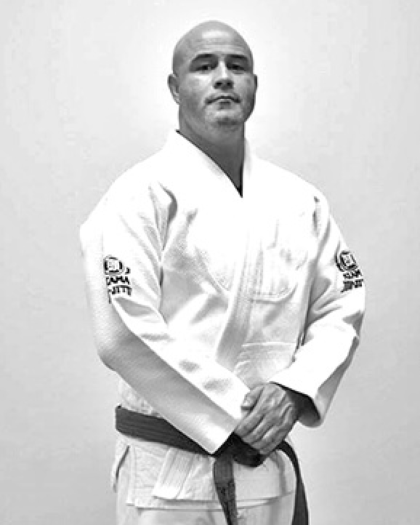 Legendary instructor and educator Kyoshi Thomas Clifford has been training and teaching in the martial arts for over 25 years. His influence has been felt throughout the United States through his work with national martial arts boards, professional organizations and well-known Jiu-Jitsu associations. As chief instructor at Thomas Clifford Karate Academy, he oversees the daily progress of students of all ages in both Karate and Jiu-Jitsu.
Legendary instructor and educator Kyoshi Thomas Clifford has been training and teaching in the martial arts for over 25 years. His influence has been felt throughout the United States through his work with national martial arts boards, professional organizations and well-known Jiu-Jitsu associations. As chief instructor at Thomas Clifford Karate Academy, he oversees the daily progress of students of all ages in both Karate and Jiu-Jitsu.
The Martial Arts Mind is honored to host him as this week’s “guest post” author.
Recognition needs to be given to the student who is not living vicariously through the achievement of someone else, but who’s legitimately and authentically achieving their own goals, day in and day out on the mat.
These are the people showing up to class two three four times a week, not running away from their problems but instead using the strategy and tactics of the martial arts to solve the issues waiting for them when they walk outside.
Martial arts is not an escape, it’s a confrontation. In fact, it’s a perversion of the purpose of the martial arts to use your training as an escape from your problems.
Why? Because while you’re training your problems will get worse.
You should be confronting the genesis of your problems, which more often than not boil down to one simple thing – being either “good idea resistant” or “bad idea receptive”.
The dojo provides us with opportunities every single day to do two things:
1. To follow through on a good idea, and to benefit from follow through on a good idea
2. To learn, in relatively safety, the negative consequences of the follow through of a bad idea
This matters because we all tend to have tremendous follow through when it comes to acting on a bad idea. The dojo provides us with a safe platform to learn the folly of that error.
So certainly we want to grant recognition to the people out there who have modified their martial art into a combat sport and are accomplishing great things. Some of them are achieving their goals, making discoveries, coming up with the distinctions that high-level contests or randori can provide them with, and then sharing those distinctions with the recreational practitioner.
But the recreational practitioners should not undervalue the benefit of achieving their “simple” goals. These include setting a clear goal and then achieving it. Making a promise and keeping it. Having a commitment and actually honoring it. Those goals make all those other achievements worth it.
Medals and championships in and of themselves have very little value, outside of entertainment, to anyone other than those who win them.
But the educational value of those experiences can serve others.
If we bring that information back to the dojo – to the child, the man, the woman, the recreational practitioner whose sole reason for training is to improve the quality of their life – then it reinforces these essential pursuits. When we do that, we can actually fulfill the true purpose of the Martial arts.
For more about our larger project of cooperative Jiu-Jitsu and martial arts training, visit the Brooklyn Brazilian Jiu-Jitsu (Brooklyn BJJ) website here.